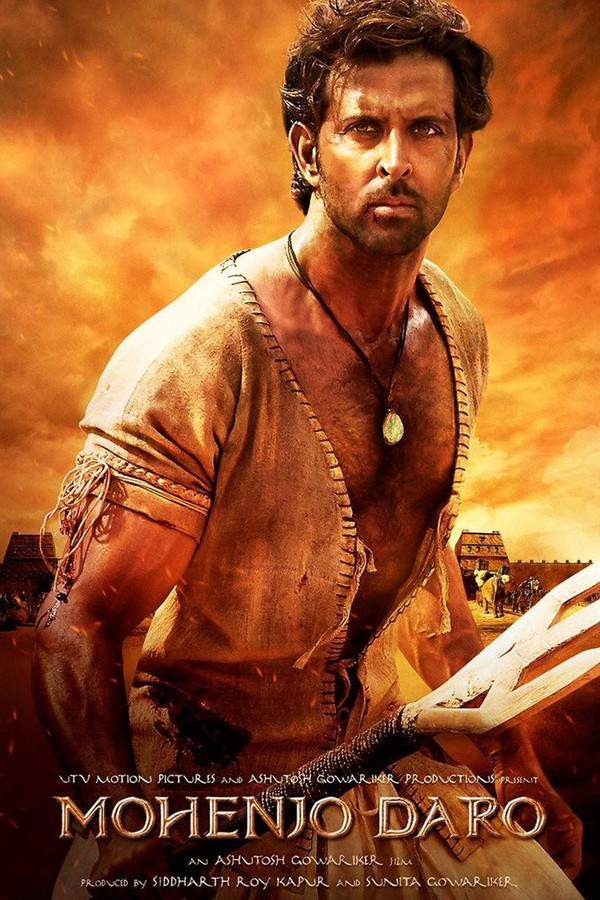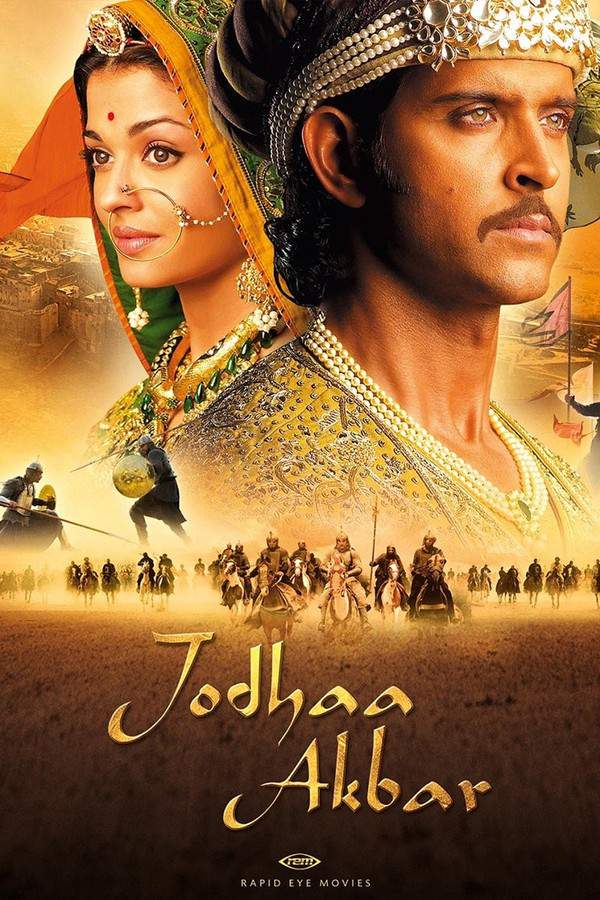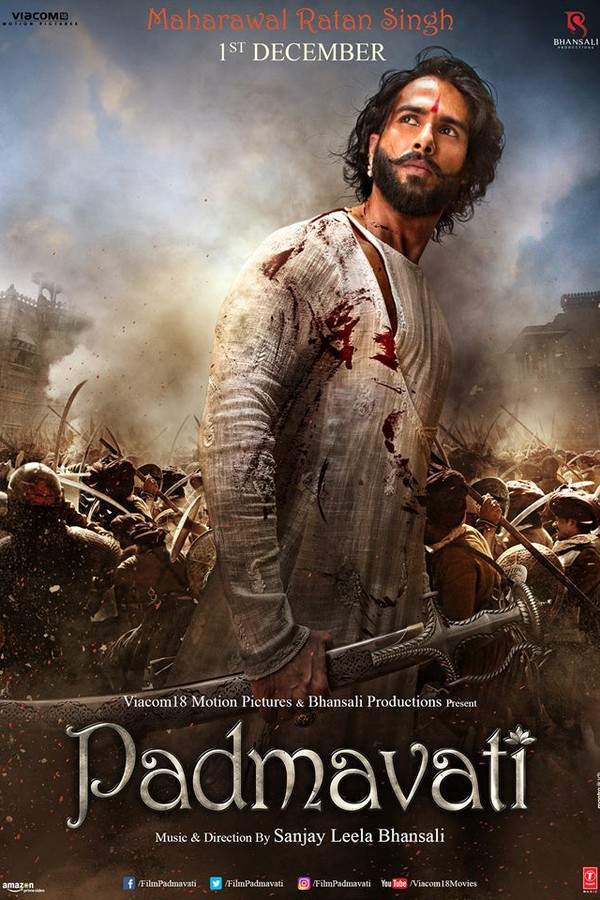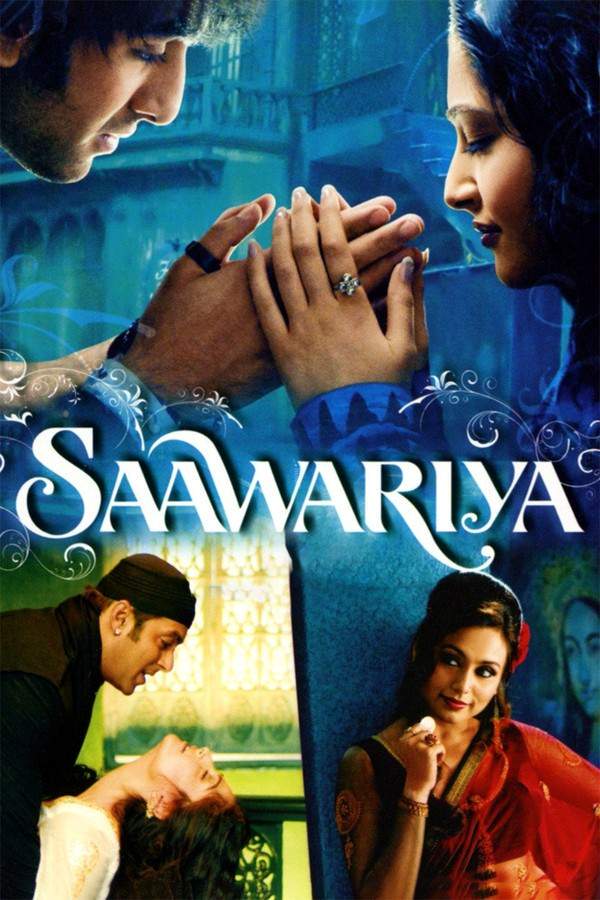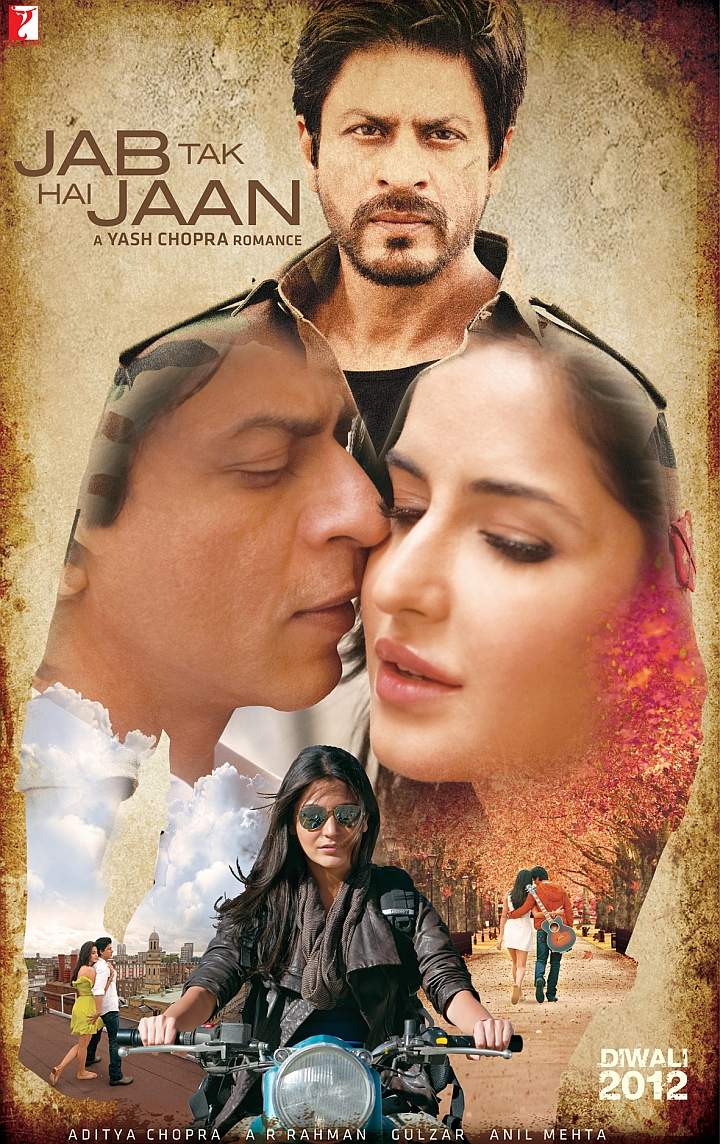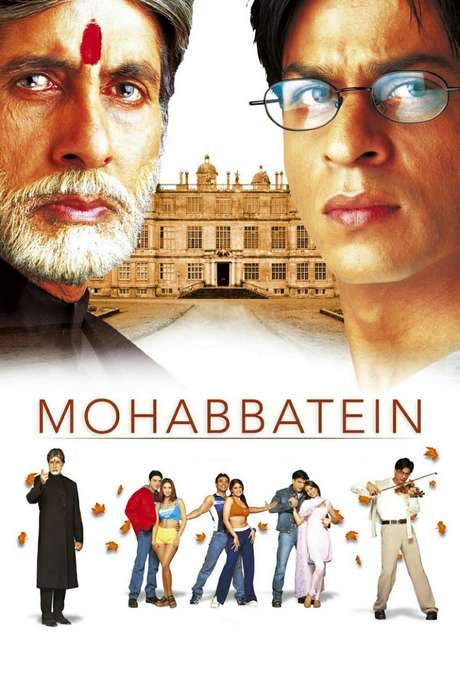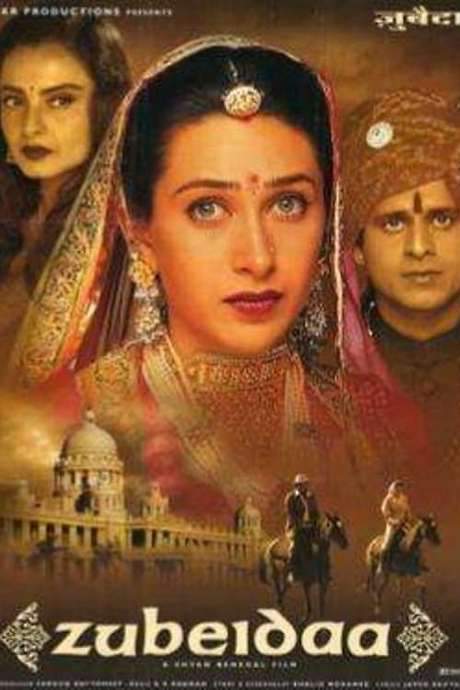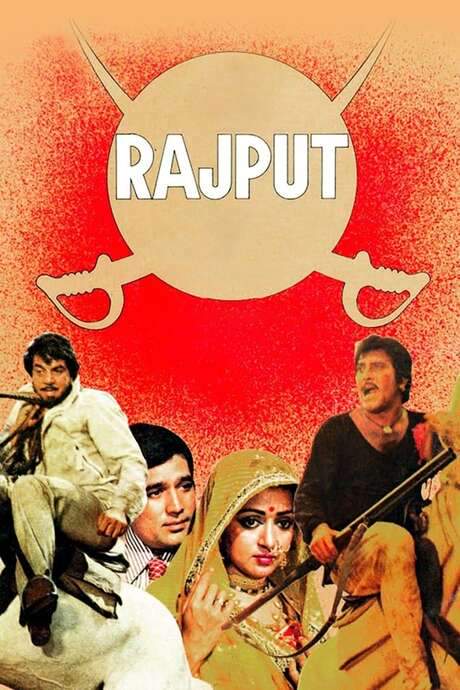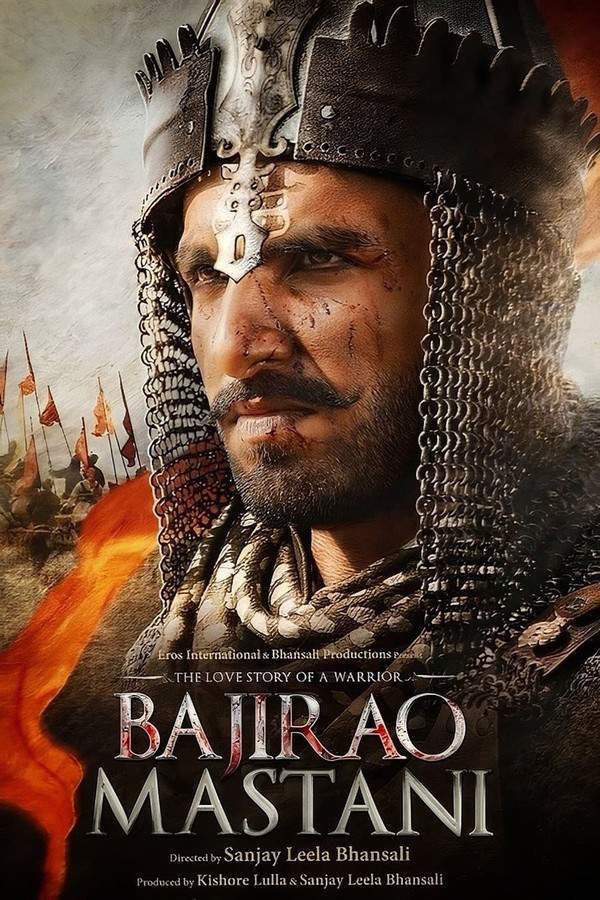
Bajirao Mastani 2015
Directed by

Sanjay Leela Bhansali
Made by

Eros International
Test your knowledge of Bajirao Mastani with our quiz!
Bajirao Mastani Plot Summary
Read the complete plot summary and ending explained for Bajirao Mastani (2015). From turning points to emotional moments, uncover what really happened and why it matters.
In the early 18th century, the court of Maratha Chhatrapati Shahu (Mahesh Manjrekar) from the Satara Empire is in search of a new Peshwa, akin to a modern prime minister. Despite Shripad Rao (Aditya Pancholi) declaring himself as the Pant Pratinidhi, it is Ambaji Pant (Milind Soman) who elects to nominate a young and ambitious Bajirao (Ranveer Singh). To test his skills, Shripad challenges Bajirao to slice a peacock feather with an arrow, a task Bajirao accomplishes with precision, thus earning the esteemed title of Shrimant Peshwa.
Fast forward ten years, Bajirao’s wife Kashibai (Priyanka Chopra) receives a visit from her widowed friend Bhanu ([Snehlata Girish Vasaikar]). Bhanu’s husband was executed on accusations of spying on Bajirao, stirring a sense of foreboding in her as she mourns her lost love. “Just as I long for my husband,” she warns, “Kashi, too, will one day yearn for Bajirao.”
While journeying to Sironja, Bajirao encounters an emissary from Bundelkhand. This emissary, Mastani (Deepika Padukone), the daughter of Rajput King Chhatrasal ([Benjamin Gilani]), turns out to be a skilled warrior. She seeks Bajirao’s assistance against invading forces, and he, duly impressed, aids her in victory. Chhatrasal celebrates this achievement, inviting Bajirao to join them for Holi. Over the festivities, Bajirao and Mastani form a deep bond, culminating in him gifting her his dagger, which symbolizes marriage among the Bundelkhand Rajputs.
Once back in Pune, Kashi greets Bajirao with a grand tour of their recently constructed Shaniwar Wada, including the magnificent Aaina Mahal (hall of mirrors), designed so she can catch glimpses of him from her quarters. Motivated by love, Mastani soon arrives in Pune but faces disdain from Bajirao’s mother Radhabai (Tanvi Azmi), who confines her to the palace’s courtesan quarters. Enduring this bitter treatment, Mastani dances for Bajirao on Parava. Radhabai offers her nothing more than a dancer’s position, denying her acceptance into the family. Resolute, Mastani approaches the King, expressing her desire to be with Bajirao, before retreating to wait for him at a secluded ruin across the river. In a dramatic moment during a storm, Bajirao crosses the river, admonishing her for her relentless hope, only to declare her as his second wife, despite the potential turmoil that lies ahead.
Bajirao departs to challenge the Nizam of Deccan (Raza Murad), facing impossible odds yet emerging victorious upon his return. However, tragedy strikes when a pregnant Kashi witnesses an embrace between Bajirao and Mastani, who is also with child. Distraught, Kashi leaves for her mother’s home, returning later with a newborn son named Raghunath in joyous celebration. Mastani, too, gives birth to a son, whom they name Krishna Rao. Yet complications arise when the head Brahmin priest, Krishnaji Bhatt, refuses to hold the naamkaran for the child, compelling Bajirao to rename him Shamsher Bahadur.
As time passes, tensions rise when Kashi’s eldest son, Balaji Baji Rao (alias Nana Saheb played by [Ayush Tandon]), returns from Satara, harboring resentment towards Mastani for allegedly fracturing his mother’s marriage. The situation escalates when Kashibai learns of a treacherous plot to harm Mastani and her son during a festival. Reluctantly, she informs Bajirao, who responds heroically to save them from impending danger.
In a tragic turn, after Shiva Bhatt, another Brahmin priest, is murdered by Krishnaji Bhatt, Bajirao’s rage leads him to construct Mastani Mahal for her protection and honor. Yet, turmoil brews within his own family as Radhabai and Nana Saheb conspire against Mastani and her child. After Bajirao’s solitary victory against Nasir, he learns of the betrayal, collapsing from his injuries as he grasps the gravity of their deception.
In desperation, Kashi implores Radhabai for Mastani’s release, but Balaji Baji Rao’s cruel decision to burn the letter leads to their tragic fate. Ultimately, Bajirao, lost in visions and delirium, succumbs to his illness, while Mastani, held captive, meets her demise, leaving the world to mourn their ill-fated love, united only in death as destiny had long decreed.
Bajirao Mastani Timeline
Follow the complete movie timeline of Bajirao Mastani (2015) with every major event in chronological order. Great for understanding complex plots and story progression.
Search for a New Peshwa
In the early 18th century, the Maratha court led by Chhatrapati Shahu seeks a new Peshwa to lead the empire. Despite Shripad Rao's declaration as Pant Pratinidhi, it is Ambaji Pant who chooses the young and ambitious Bajirao for the esteemed role.
Bajirao's Challenge
To prove his worth, Bajirao is challenged by Shripad Rao to slice a peacock feather with an arrow. Bajirao impressively accomplishes this task, cementing his position as Shrimant Peshwa, the highest rank within the empire.
Kashibai Visits Bhanu
Ten years after Bajirao's ascension, his wife Kashibai receives a visit from her widowed friend Bhanu. Bhanu reflects on her own loss, warning Kashibai that she too will one day long for her husband, creating a sense of foreboding.
Encounter with Mastani
While traveling to Sironja, Bajirao meets Mastani, the daughter of Rajput King Chhatrasal. She seeks his aid against invading forces and shows her prowess as a skilled warrior, impressing Bajirao significantly.
Victory and Celebration
Bajirao assists Mastani in defeating the invading army, and King Chhatrasal celebrates their victory by inviting Bajirao to join them for the festival of Holi. It is during this festive occasion that Bajirao and Mastani begin to forge a deep bond.
Return to Pune
Upon returning to Pune, Bajirao is greeted by Kashibai, who proudly shows him their new Shaniwar Wada, complete with the stunning Aaina Mahal. The gestures of love and admiration from Kashibai highlight her devotion to Bajirao.
Mastani's Arrival
Mastani arrives in Pune motivated by her love for Bajirao, but she is met with disdain from his mother, Radhabai. Confined to the courtesan quarters, Mastani faces harsh treatment yet remains determined to be with Bajirao.
Dancing for Bajirao
Despite Radhabai's disdain, Mastani dances for Bajirao during the Parava festival, showcasing her resilience. However, Radhabai refuses to accept her into the family, only offering her a position as a dancer, further complicating the situation.
Mastani's Declaration
Mastani courageously approaches the King to express her desire to be with Bajirao, stating her unconditional love. She then retreats to a secluded ruin across the river, waiting for him, demonstrating her unwavering hope.
Union in a Storm
During a fierce storm, Bajirao crosses the river to find Mastani and expresses frustration over her hope. However, in a dramatic twist, he declares his intention to take her as his second wife, despite potential familial turmoil.
Victory Against the Nizam
Bajirao sets out on a mission to challenge the Nizam of Deccan, facing insurmountable odds. His return as a victorious leader not only strengthens his status but also ignites further tensions within his already fragile household.
Kashi's Heartbreak
Kashibai, now pregnant, witnesses an intimate moment between Bajirao and Mastani, leading her to feel betrayed. Overwhelmed, she retreats to her mother’s home, creating a rift between the spouses that escalates their challenges.
Birth of Their Children
Kashibai gives birth to a son, Raghunath, amid joyous celebration, while Mastani also births her son, later named Krishna Rao. However, complications arise when the head Brahmin priest refuses to perform the naming ceremony.
Growing Resentment
As tensions heighten, Kashibai's son Balaji Baji Rao returns from Satara, harboring deep resentment towards Mastani. The conflict escalates when Kashibai learns of a treacherous plot against Mastani and informs Bajirao, urging him to act.
Tragic Endings
Violence erupts when another Brahmin priest is murdered, sending Bajirao into a rage. Despite constructing a grand palace for Mastani, betrayal from his own family leads to tragedy, culminating in Bajirao's demise and Mastani's ultimate fate, leaving their tragic love story forever marked by sorrow.
Bajirao Mastani Characters
Explore all characters from Bajirao Mastani (2015). Get detailed profiles with their roles, arcs, and key relationships explained.
Bajirao
Bajirao is portrayed as a young and ambitious warrior, driven by a blend of duty and love. His character is marked by a strong sense of honor, loyalty, and valiant spirit, often torn between his responsibilities as a ruler and his affections for both Kashibai and Mastani. His journey encapsulates the struggles of leadership amid personal turmoil.
Kashibai
Kashibai embodies the archetype of strength and resilience, serving as Bajirao's loyal wife who grapples with the fragility of her marital bliss. Her character arc captures the pain of betrayal and the complexities of love, as she ultimately strives to protect her family while grappling with her emotions towards Bajirao's second marriage.
Mastani
Mastani is depicted as a fiercely independent warrior princess driven by love and duty. Her character symbolizes strength and defiance against societal norms, showing resilience in the face of discrimination. Her relationship with Bajirao is filled with passion and complexity, illustrating the challenges faced by women in pursuing their desires.
Radhabai
Radhabai is Bajirao's mother, embodying traditional values and familial loyalty. Her character reflects the societal prejudices of the time, characterized by her rejection of Mastani and futile attempts to maintain family honor. Her harshness reveals the complexities of maternal love and how it can sometimes lead to tragic outcomes.
Bajirao Mastani Settings
Learn where and when Bajirao Mastani (2015) takes place. Explore the film’s settings, era, and how they shape the narrative.
Time period
Early 18th century
The early 18th century was marked by significant political turmoil and power dynamics in India, predominantly dominated by regional kingdoms like the Marathas. This period saw the rise of influential leaders and their complex relationships, influenced by wars, alliances, and cultural shifts. The storyline captures the essence of the time, defined by valor, rivalry, and the struggle for power and love.
Location
Satara, Bundelkhand, Pune
The movie unfolds primarily in the Satara Empire during the 18th century, which is known for its opulent forts and rich Maratha history. Pune serves as the backdrop for Bajirao's court, where grand palaces like Shaniwar Wada reflect the era's architectural splendor. Bundelkhand, significant in the story, highlights the cultural exchanges during the period, particularly during festive occasions like Holi.
Bajirao Mastani Themes
Discover the main themes in Bajirao Mastani (2015). Analyze the deeper meanings, emotional layers, and social commentary behind the film.
❤️
Love and Sacrifice
The theme of love and sacrifice permeates the narrative, illustrating the complexities of Bajirao's relationships with both Kashibai and Mastani. Their love is intertwined with societal expectations and family loyalty, leading to heart-wrenching choices and sacrifices. Ultimately, their love story becomes a tragic tale of devotion thwarted by fate.
⚔️
Valor and Honor
Valor and honor play a crucial role in the lives of the characters, especially in Bajirao's quest for glory as he faces formidable opponents. His bravery is not just limited to the battlefield, as he also confronts the familial and societal challenges posed by his marriages. This theme underscores the conflicts between personal desire and duty.
🗡️
Power Struggles
The movie delves into the power struggles inherent in royal courts, highlighting the intricate politics within Bajirao's family. The tension between Mastani's acceptance and Radhabai's disdain illustrates the fragility of power and the lengths individuals will go to maintain their status and influence. These dynamics create a rich backdrop for the unfolding drama.

Coming soon on iOS and Android
The Plot Explained Mobile App
From blockbusters to hidden gems — dive into movie stories anytime, anywhere. Save your favorites, discover plots faster, and never miss a twist again.
Sign up to be the first to know when we launch. Your email stays private — always.
Bajirao Mastani Spoiler-Free Summary
Discover the spoiler-free summary of Bajirao Mastani (2015). Get a concise overview without any spoilers.
In the opulent courts of early‑18th‑century Maratha India, power is a delicate dance of tradition and ambition. Bajirao, a brilliant and daring Peshwa, commands respect as the empire’s de facto prime minister, balancing the expectations of a burgeoning dynasty with his own restless spirit. The world swirls with grand palaces, glittering festivals, and the ever‑present weight of lineage, creating a backdrop where duty is both a crown and a cage.
When the poised and dutiful Kashibai arrives as his arranged wife, their marriage embodies the stability the realm demands. Yet the arrival of the fierce and independent Mastani, a princess‑warrior from a neighboring kingdom, introduces a pulse of untamed passion. Their connection is immediate and electric, a meeting of equal minds that challenges the rigid codes of society and the expectations of a family steeped in tradition. The court’s gilded corridors begin to echo with whispers, as love and politics intertwine in ways no one anticipated.
Across marble halls and reflective mirrors, the three protagonists navigate a complex web of loyalty, desire, and honor. The tone is lush and sweeping, blending epic grandeur with intimate, heart‑wrenching moments. As Bajirao strives to reconcile his responsibilities with the fierce yearning he feels for Mastani, the story hints at the inevitable clash between personal fulfillment and the unyielding pressures of heritage. The stage is set for a timeless tale of love that dares to defy convention, inviting the audience to wonder how far a man will go to honor both his heart and his crown.
Can’t find your movie? Request a summary here.
Movies with Similar Twists and Themes
Uncover films that echo the narrative beats, emotional arcs, or dramatic twists of the one you're exploring. These recommendations are handpicked based on story depth, thematic resonance, and spoiler-worthy moments — perfect for fans who crave more of the same intrigue.
Featured on this page

What's After the Movie?
Not sure whether to stay after the credits? Find out!
Explore Our Movie Platform
New Movie Releases (2026)
Famous Movie Actors
Top Film Production Studios
Movie Plot Summaries & Endings
Major Movie Awards & Winners
Best Concert Films & Music Documentaries
Movie Collections and Curated Lists
© 2026 What's After the Movie. All rights reserved.



